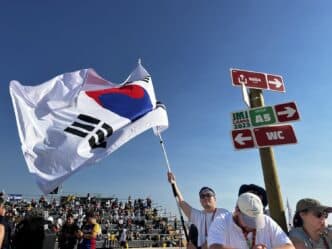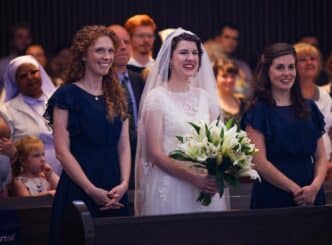BEIRUT (OSV News) — Maronite Patriarch Cardinal Bechara Rai expressed “profound sorrow” over the “devastating toll” of Israeli airstrikes on Lebanon, the country’s state news agency NNA reported on Sept. 22.
In his Sunday homily on Sept. 22, he said the “unprecedented” attacks are “devoid of humanity.”
Escalating conflict
NNA reported that Israeli aircraft carried out a total of 111 airstrikes on southern Lebanon in one hour the morning of Sept. 21, with the Israeli army saying it hit about 180 Hezbollah targets. CNN reported that the number of airstrikes “is among the highest recorded since Hezbollah began firing rockets into northern Israel last year” in support of Hamas amid the Israeli-Hamas war in Gaza.
Hezbollah launched more than 100 rockets early on Sept. 22 across a wider and deeper area of northern Israel. A Hezbollah leader declared an “open-ended battle” was underway as both sides appeared to be spiraling toward all-out war following months of escalating tensions, The Associated Press reported on Sept. 22.
Call for intervention
NNA reported that Cardinal Rai called on the United Nations Security Council to intervene and “put an end to the ongoing conflict.”
“In war, everyone is a loser; the only winners are arms dealers,” the patriarch said.
The death toll from a “targeted attack” by the Israeli military on a Beirut suburb on Sept. 20 rose to 37, including seven women and three children, Lebanon‘s health minister said on Sept. 21. This comes as the U.S. also urged Americans in Lebanon to leave the country.
The weekend attacks followed a wave of explosions of hand-held devices on Sept. 17 and 18 across Lebanon and in the capital, Beirut, apparently targeting the Iran-backed Hezbollah militant group.
Shifting political landscape
During his homily, Cardinal Rai expressed “deep concern” about Lebanon’s shifting political landscape, noting that the nation has moved from a state of “unique pluralism” to one characterized by “singularity and division,” according to the NNA news agency. He warned that this troubling trend can only be reversed when the Lebanese people embrace a “new path forward,” one that fosters hope and lays the groundwork for “a new historical narrative.”
He urged Lebanese politicians to establish “a stable and independent Lebanese state, capable of overcoming internal divisions and healing the scars of war.”
He stated that this goal “can only be achieved through the election of a president who will restore legislative powers to Parliament and uphold the constitutional authority of the Council of Ministers,” NNA reported on Sept. 22.
Pope Francis’ appeal for peace
Following his Sunday Angelus, Pope Francis reiterated his “tireless call for prayers for peace, Vatican News said.
“Brothers and sisters, let us continue to pray for peace. Unfortunately, tensions are very high on the war fronts,” he said, appealing to all people of goodwill not to forget the suffering in”so many countries at war.” “May the voices of the peoples asking for peace be heard,” he prayed.
In a Sept. 22 post on X, formerly Twitter, the U.N. special coordinator in Lebanon, Jeanine Hennis-Plasschaert, said: “With the region on the brink of an imminent catastrophe, it cannot be overstated enough: there is NO military solution that will make either side safer.”
Concerns from local religious leaders
“No one wants the conflict to escalate,” said Maronite Archbishop Charbel Abdallah of Tyre, the major city in the south of Lebanon.
According to a Sept. 20 Vatican News report, the archbishop recalled “the fragile situation” of the local population and the devastating war in 2006 between the Israeli army and Hezbollah. But he emphasized that despite the fighting, “prayer remains at the heart of the Christian communities that have stayed in the region.”







